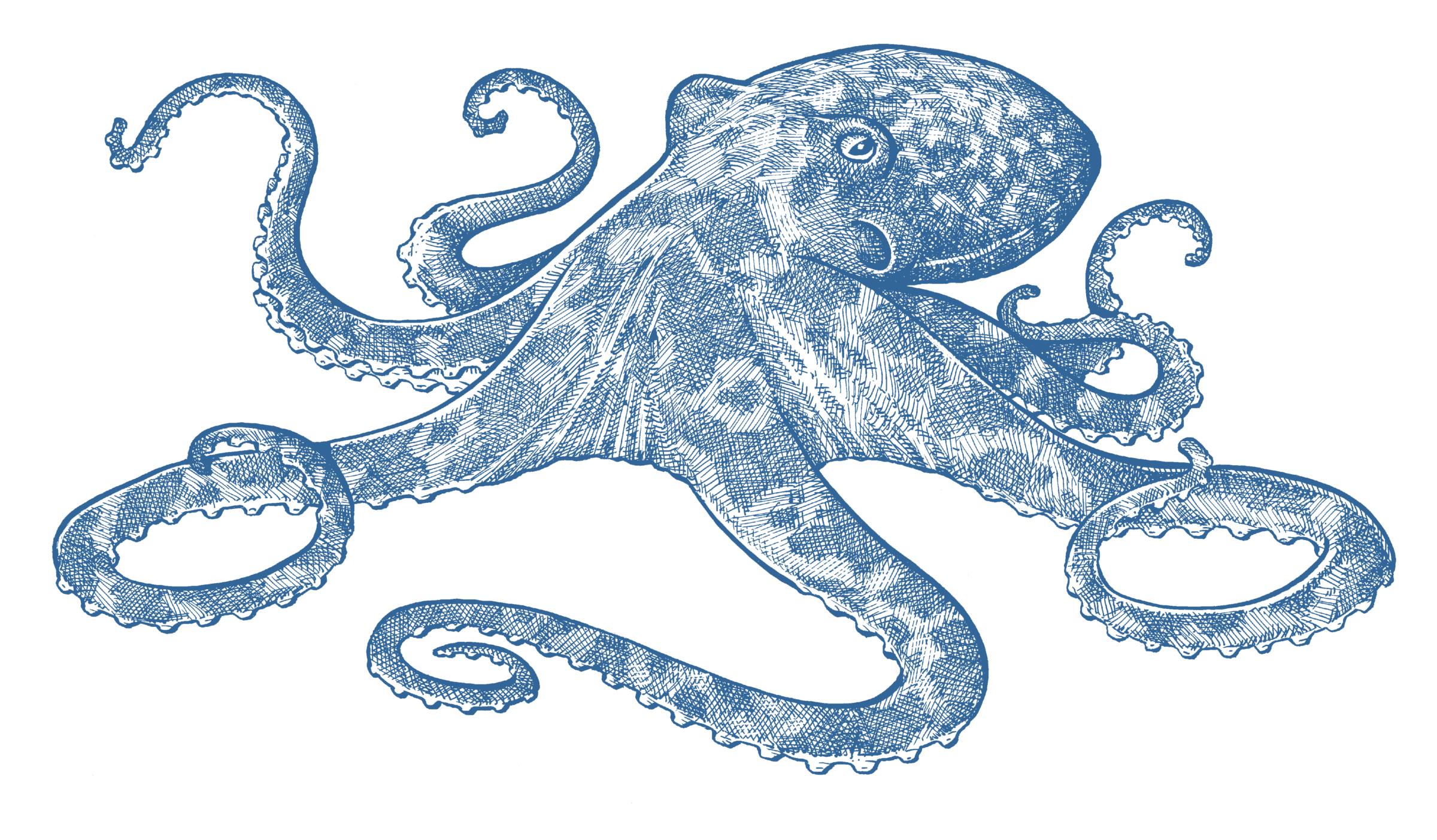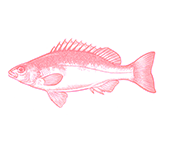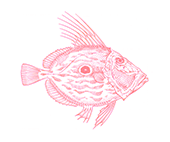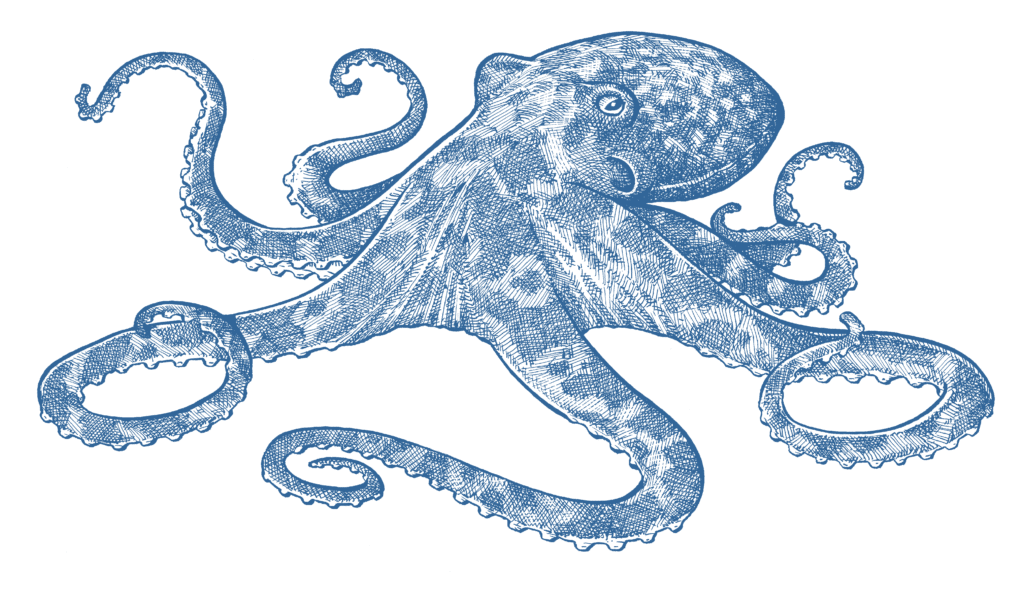




- Say No
Wild Caught
Region:
QLD
Note: Choose pot caught New South Wales octopus if possible (or octopus from WA, TAS or VIC), as these are a more sustainable choice with much lower impacts on overfished or protected bycatch species, and seafloor habitats than octopus caught in trawl fisheries.
- In QLD, octopus is caught as retained bycatch in bottom trawl fisheries targeting prawns and fish.
- Although there is limited stock status information for the species of octopus caught, octopus generally grow and reproduce quickly, and populations are resilient to fishing pressure. Multiple species are caught, but catches are not recorded to species level.
- There are currently no explicit management measures in place to control octopus catch.
- The accidental catch of threatened and endangered species like endemic sharks and rays is a major issue in Australian prawn fisheries. The Queensland government abandoned an independent observer program in 2012 so bycatch reporting is not reliable and science-based management is hampered as a result.
- Octopus are caught using otter trawls that operate just above the seafloor. Significant areas of the seafloor are protected in area closures and marine parks in the QLD fishery.
- Octopus caught in trawl fisheries generally involves a much higher level of environmental impact on bycatch species and seafloor habitats than in fisheries found in other states that use pot and trap fishing methods.
- East Coast Trawl Fishery (>25t in 2020)
Octopus are caught as byproduct in fisheries targeting prawns and fish using bottom trawl fishing methods.
Octopus caught in trawl fisheries generally involves a much higher level of environmental impact on bycatch species and seafloor habitats than in fisheries found in other states that use pot and trap fishing methods.
Octopus generally grow and reproduce quickly, and populations are resilient to fishing pressure.
Six species of octopus are caught in QLD prawn trawl fisheries, the Hammer octopus, Red-spot night octopus, Scribbled night octopus, Plain-spot octopus, Veined octopus and Southern star-eyed octopus. No scientific fishery assessment or species-specific catch data are available for any species.
Queensland trawl fishers are required to report any threatened and endangered species they catch but serious concerns have been raised in this fishery about unreliable reporting. Bycatch mitigation measures including turtle excluder devices are used in Queensland but may not address all the impacts of the fishery. Despite no major changes to management and a consistent level of fishing effort in recent years, 2019 saw a 63% reduction in bycatch reports of species like sawfish, sea turtles and sea snakes. This bycatch reporting is unverifiable because there has been no independent observer program since 2012.
This fishery has a high level of discards and it is concerning they are not required to be reported. The most recently available data estimated 25,271t of discards in 2014, compared to 6702t of retained catch in the same year.
The fishery will be required to resume an independent observer program by 2024, likely to be based on e-monitoring. While it is welcome, the program should be implemented sooner. This and other reforms currently underway in the Queensland fishery have strong potential to improve the GoodFish ranking of this seafood option if implemented quickly and effectively.
Consumers should choose pot or trap caught octopus from other parts of Australia if possible (there is currently no pot/trap octopus fishery in QLD), though this may be difficult to find. Octopus caught with much lower environmental impact is available from other states.





